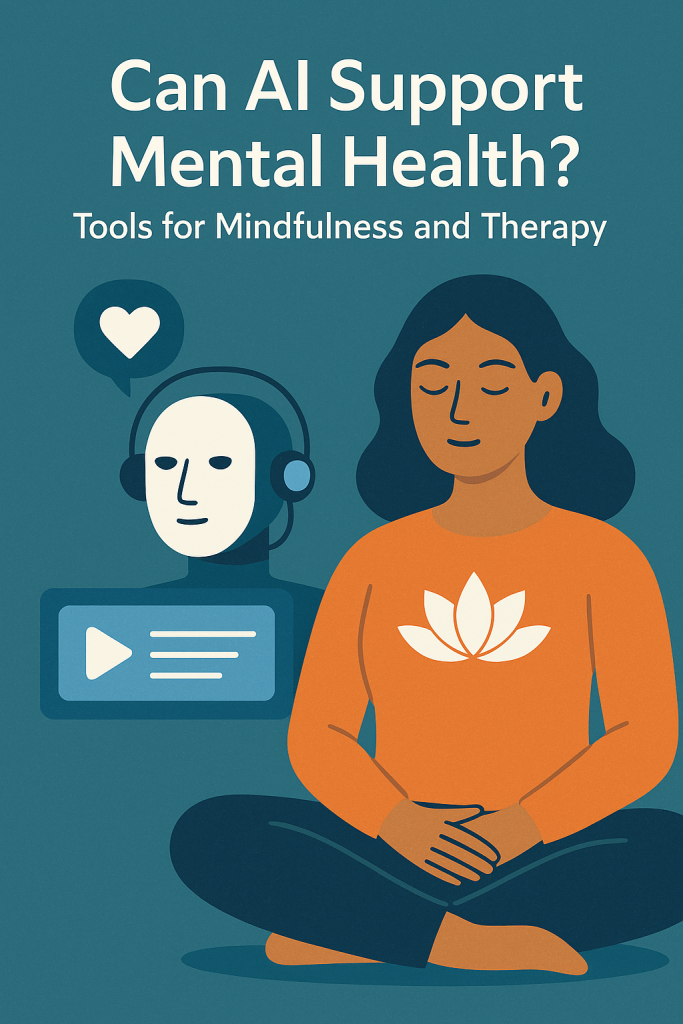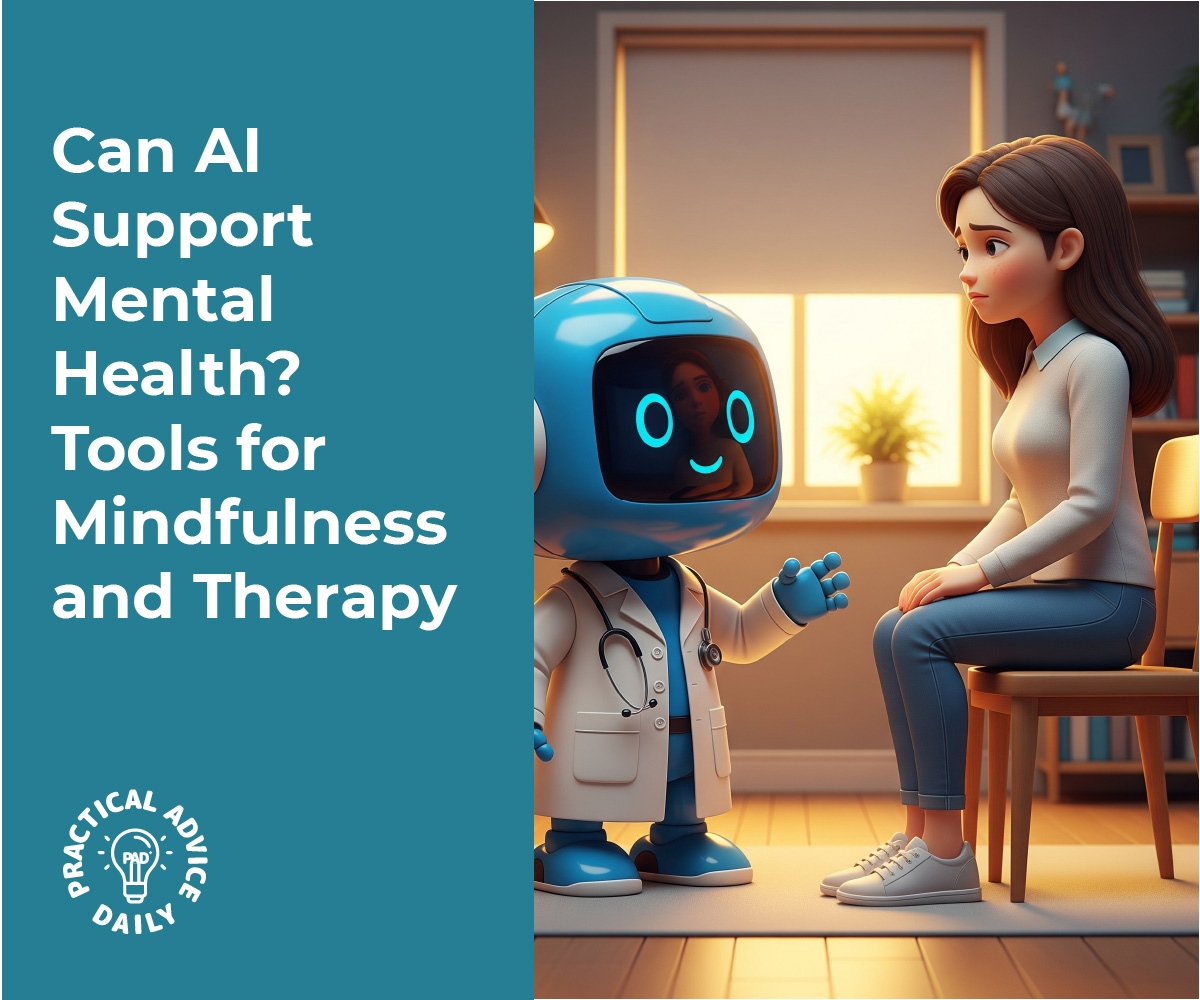Mental health is important at every age, but finding support can sometimes feel confusing or out of reach. Thankfully, technology is opening new doors. From friendly chatbots to simple apps that help track your mood, artificial intelligence (AI) is becoming a helpful tool for emotional wellness.
Don’t worry—this guide is beginner-friendly. You don’t need to be tech-savvy to understand how these tools work or how they can fit into your daily life. We’ll walk through the most helpful options and show you how they can support your mental well-being in easy, practical ways.
Key Takeaways
- AI chatbots can offer conversation-based support when you’re feeling stressed or down
- Mood tracking apps help you recognize emotional patterns and triggers
- Mindfulness tools use AI to guide breathing exercises, meditations, and calming routines
- These tools are not a replacement for therapy, but they can offer valuable everyday support
- Most are easy to use and available on your smartphone or computer
How AI Supports Mental Health
Let’s take a closer look at how AI can help with emotional wellness. You may be surprised at how user-friendly and helpful these tools can be.
1. Therapy Chatbots
These are apps or websites where you can “talk” to a virtual assistant about how you’re feeling. The chatbot isn’t a real person, but it’s designed to listen and respond in a thoughtful, supportive way.
How it helps:
- Offers a safe, private space to express feelings
- Gives gentle encouragement or tips based on what you share
- Can suggest coping strategies or ask helpful questions

Real-life example:
Imagine you’re feeling anxious before a big event. You open the chatbot, type in how you’re feeling, and it responds with calming suggestions like, “Let’s take a few deep breaths together.”
Popular options: Woebot, Wysa, and Tess
🧠 These tools are not doctors, but they can be great for daily support and reflection.
2. Mood Tracking Apps
Our emotions can be hard to understand, especially when they change from day to day. Mood tracking apps let you record how you’re feeling, and over time, they help you spot patterns.
How it helps:
- Track moods daily with just a tap or quick note
- Show trends (like feeling low on certain days or after poor sleep)
- Help you prepare for tough days by noticing early signs
Real-life example:
You might notice you often feel down on rainy days or more cheerful after a walk. Seeing this helps you make small changes that boost your mood.
Popular options: Daylio, Moodnotes, and Bearable
3. AI-Guided Mindfulness and Meditation
Mindfulness is about being present and calm. Many apps now use AI to guide you through breathing exercises, meditations, and gentle body scans based on how you’re feeling.
How it helps:
- Offers guided sessions that adjust to your mood
- Tracks progress and recommends what to try next
- Encourages regular breaks to reduce stress
Real-life example:
If you log that you’re feeling overwhelmed, the app may suggest a 5-minute breathing exercise designed to calm your nervous system.
Popular options: Calm, Headspace, and Balance
🌿 Even a few minutes a day can help reduce stress and improve sleep over time.
Are These Tools Safe and Private?
Yes, most well-known apps take your privacy seriously. Look for tools with clear privacy policies and good user reviews. Always read the fine print and choose apps that don’t share your information without permission.
🛡️ Reminder: These tools support your wellness, but they’re not a substitute for professional help if you’re struggling deeply.
Final Thoughts
AI tools are becoming thoughtful, gentle companions in the journey toward better mental health. Whether it’s talking to a chatbot, tracking how you feel, or pausing for a calming breath, these tools can help you better understand and care for your emotional well-being.
You don’t have to dive in all at once. Try one app that sounds interesting and see how it feels. With just a few minutes a day, you might notice small but meaningful improvements.
Want to keep learning? Explore our other beginner-friendly tech guides focused on well-being and healthy habits.
